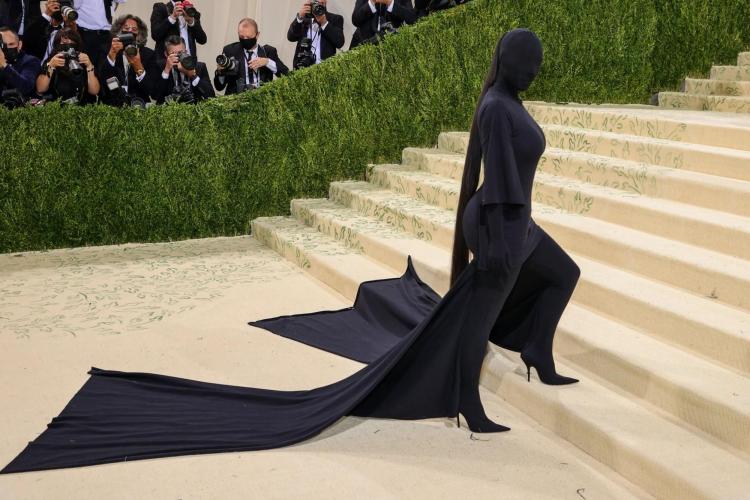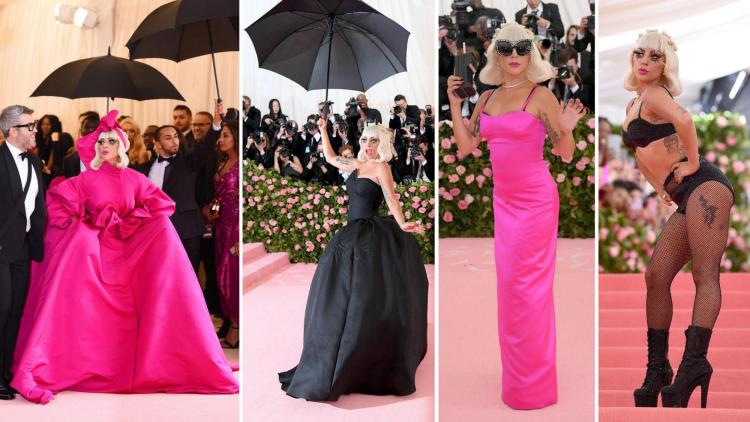In anticipation of tonight’s Met Gala, CU Boulder’s Markas Henry reflects on the sometimes vague or even non-existent line between clothing and show
No less an authority than Coco Chanel said, "Fashion is not something that exists in dresses only. Fashion is in the sky, in the street. Fashion has to do with ideas, the way we live, what is happening."
However, the equally stylish Anna Wintour later observed, “You either know fashion or you don’t.”
As longtime editor of U.S. Vogue, Wintour clearly knows fashion. And as host of tonight’s Met Gala, Wintour will preside over what is arguably the biggest fashion event of the year. Celebrities and fashion insiders will converge on the Metropolitan Museum of Art in New York City for the opening of the Costume Institute’s exhibit “Sleeping Beauties: Reawakening Fashion” and dressed to the theme of “Garden of Time.”

Markas Henry, a CU Boulder associate professor of theatre, notes that distinctions between fashion and costume can blur at the Met Gala.
“In a way, it’s a theme party,” says Markas Henry, a University of Colorado Boulder associate professor of theatre who teaches a course called Fashion, Society and Décor, as well as courses in costume design. “Everything is so heightened and so exaggerated.”
For fans watching the Met Gala red carpet arrivals, the one-of-a-kind custom or haute couture creations may beg the question: But is it fashion or is it costume? At the heights and extremes of raiment seen at the Met Gala, it’s often both, Henry says.
Creating characters
The Met Gala is held the first Monday in May in support of the Costume Institute, which grew from the Museum of Costume Art, a library dedicated to the art of theatrical costumes. So, “it makes sense to think about costume in terms of the Met Gala,” Henry says, adding that a foundational principle of costume is storytelling.
“We’re creating characters,” he explains. “Costume is created for a particular character on a particular actor, and costume design is a collective vision. It starts of with a designer’s vision and the actor’s, then the director’s. They’re thinking about the character they’re creating and it’s not just one person’s vision; it’s collectively telling that character’s story or telling a story through that character.”
Any line between fashion and costume may become blurry because fashion also can tell a story, Henry says, and because costume can mean a style of dress specific to a culture, era, country or people. In the popular imagination, however, costumes also are associated with donning a character or identity—whether on the stage or even as a Halloween costume.

Kim Kardashian wore Balenciaga haute couture to the 2021 Met Gala. (Photo: Theo Wargo/Getty Images)
“A distinction between fashion and costume is that fashion isn’t necessarily created for a specific character,” Henry says. “It’s the fashion designer’s vision and they may have an idea of who they’re designing for, but it’s rarely telling the story of a specific person. Even if they have a person in mind, it’s more the idea of them, it’s characteristics rather than an actual person.
“The old joke is that fashion is ‘one size fits none,’ but really, mass-market fashion is created for a populace. As you ascend into the realm of haute couture, that’s where you get more into creating a work of art—this idea of creating a garment that’s going to be worn once, definitely more form than function.”
‘Where fashion and theater coalesce’
Fashion and costume also overlap in the realm of theater, Henry says, especially in runway shows during fashion weeks “where designers are presenting their season and it’s total theater. It’s light and sound and atmospherics, it may be extreme make-up and extreme hair. And you may see a handful of those looks from the runway on red carpets, but in general this is not for everyday wear. This is where you see the outer limits of a fashion designer’s vision, but it’s not what you’re actually going to see in a store.”
The Met Gala is fascinating because it might also be considered a form of theater: “It’s heightened, it’s extraordinary and not ordinary, it steps outside the everyday world and creates this fantastical world focused around a theme,” Henry explains, citing the 2019 Met Gala theme “Camp: Notes on Fashion” as a fascinating example of the confluence of fashion, costume and theater.

Lady Gaga transitioned through four looks designed by Brandon Maxwell at the 2019 Met Gala. (Photos: Getty Images)
“An example is the four looks Brandon Maxwell designed for Lady Gaga that year,” Henry says. “It was the perfect fusion of the Met Gala with couture fashion with showmanship and outside-the-box presentation.
“I think that’s really where any line between fashion and costume gets blurry. Another example is the meat dress (Lady Gaga wore to the 2010 MTV Video Music Awards). That is now fashion, but when she wore it, you’re looking at it going, ‘That’s a costume.’ It was an outrageous garment made, essentially, for a character.”
The Met Gala also prompts interesting discussion in class about the roles of stylist, designer and costumer, Henry says. “The Met Gala is styling, because it emphasizes fashion and you style fashion, versus costume design where every single aspect of appearance is a factor, versus ‘I need to come in and make these people look good,’ which is a costumer. One is not more important than the other—they’re just different jobs.
“The Met Gala is the perfect fusion of all these things, styling and costuming and costume design. Any time it’s haute couture, any time it’s one-off constructions, then it really is falling into the world of costume design, because it’s not something that’s going to be mass produced. You’re not going to walk into Saks or Bergdorf and find that gown. So, I think that’s why the Met Gala is so interesting, because it really is where fashion and theater coalesce.”
Top image: Billy Porter poses at the 2019 Met Gala. (Photo: Angela Weiss/Getty Images)
Did you enjoy this article? Subcribe to our newsletter. Passionate about theater? Show your support.



